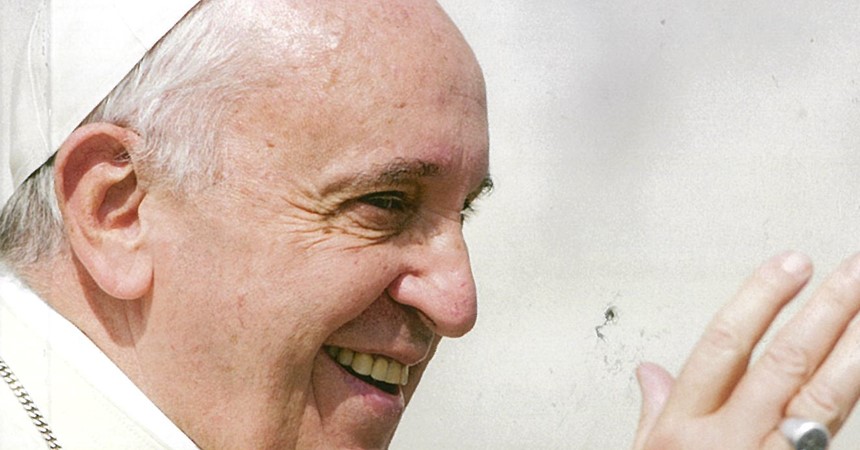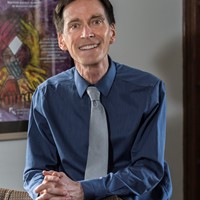The very idea of holiness, however, can be discouraging: it sounds too remote, too perfect, too much about all that is not true of us. Still more, we may feel a certain cynicism towards the term, associating it with the illusion of being better than others.
As he does so often on many themes, Pope Francis in his recent exhortation, Gaudete et Exsultate (“Rejoice and be Glad”), invites the church to a new perspective on holiness. Above all, he invites us to recognise and express in our lives the holiness to which the Spirit of God calls each of us.
The pope states unambiguously that the call of the Spirit is not rare and exceptional, but part of our everyday life, as can be our response to the Spirit. Holiness requires only the willingness to open our hearts in love to the needs of others. Pope Francis stresses that holy individuals and communities are those who practise “the little details of love” in daily life.
Pope Francis underscores the importance of everyday acts of mercy, compassion and generosity, all of which reflect God’s holiness. In doing so, Francis challenges us to understand holiness as something other than a static perfection ‒ the creator God, the God who become incarnate in Jesus Christ, and continues to bestow the Holy Spirit on the community of faith and the whole creation, is surely anything but static.
In making clear that holiness “is not about swooning in mystic rapture,” Pope Francis emphasises that holiness does not separate us from the messy reality of daily life. Holy people are those who allow God’s Spirit to guide them in sharing God’s life with others, precisely in that messy reality. As ever, Pope Francis seeks a church that looks outward towards the world, not one that walls itself off from those who suffer, those on the “peripheries,” to use a term the pope employs often.
In a way that is stunning, even shocking, the pope says of saints, the people whom we acknowledge as holy, “Not everything a saint says is completely faithful to the Gospel; not everything he or she does is authentic or perfect.” This acknowledgement reflects a conviction that emerges clearly from the text of the exhortation: holiness is a process, not a once-for-all, one-off event.
The exhortation is uncompromising in rejecting any sense that only some people can be holy. In that vein, the pope repudiates the view that the church could be a community of the “strict and allegedly pure”. He disclaims too the idea that any of us can know where others stand with God. Here again, the pope rebuts the idea that the church is a community of the perfect. As his alternative to a false claim to perfection, especially a perfection we could accomplish by our own efforts and will-power, Pope Francis presents holiness as a work of grace, through which God’s Spirit “takes hold of us and transforms us progressively”.
Pope Francis offers a list of qualities most likely to be evident in those who embrace the Spirit’s call to holiness: perseverance; patience; meekness; joy and a sense of humour; boldness and passion; a commitment to community; constancy in prayer. Each quality on that list can be a lifelong project. Each of them also contributes to our formation as people who embody the Beatitudes, the model of holiness that Jesus offers and on which the pope reflects extensively in his text.
Not surprisingly, Pope Francis showcases prayer as integral to the life of holiness. Prayer, which has its source in the Holy Spirit, frees us from the danger of sinking into “a dull and dreary mediocrity”. Prayer frees us to live more boldly as disciples of Jesus, and to embrace all “that is great, better and more beautiful”.
True to his Jesuit heritage, Pope Francis stresses the importance of discernment, the “readiness to listen” to the movement of God’s Spirit in our lives. Discernment requires quiet, which, in contemporary terms, will call us to find some distance from the “zapping” (a most unusual papal word!) that can obsess us in the digital age.
Discernment can be disturbing: it brings us face-to-face with the ways we have damaged others and obscured the mercy of God. God’s Spirit speaks, however, with the compassion of Christ, calling us to reform and a renewed practice of justice. The Royal Commission has laid bare our church’s manifold failings; discerning how the Spirit is now calling us to live the gospel more authentically is an urgent task for us all.
Holiness is not perfection, but it is “the most attractive face of the Church”. Gaudete et Exsultate is a timely reminder that the Spirit enables us to be that face, to reveal Jesus Christ.























































































